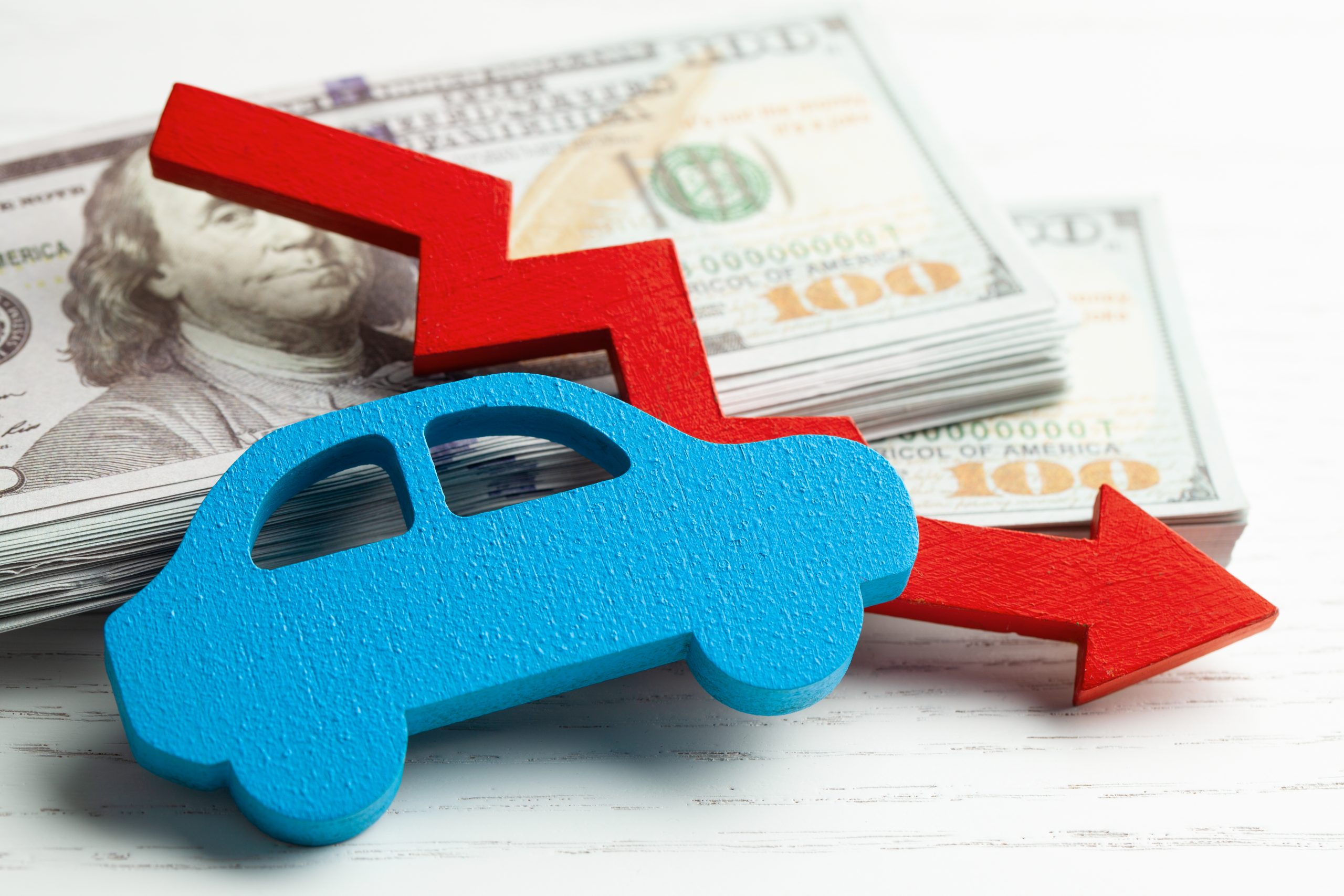Best Car Insurance Rates: Advice for Massachusetts Drivers

Here at C&S, we’ve certainly fielded more inquiries than usual, from customers looking to shop their policies. Their premiums may have gone up a little—or not at all. Still, understandably, saving money is more important to them now versus past years.
Given the current climate, we realized we needed to do a better job explaining what’s really behind car insurance rates. What makes them go up and down, from one year to the next? When should consumers react to those fluctuations? And why is it disadvantageous to re-shop home or auto insurance every time the rate inches upward?
The following is a quick FAQ for anyone on the hunt for THE BEST car insurance rates.
Which companies have the best car insurance rates?
There’s no easy way to answer this question for everyone. So, let’s break it down into a few key guidelines:
Car insurance rates are very individualized, based on you (the buyer) and your profile. Your age, your address, your vehicle(s), your driving history, your payment history, even the number of licensed drivers in your household: these are all factors that weigh into the price you will get from any carrier. (Note that while other states also use credit scores to calculate your car insurance rate, Massachusetts does not.)
Different carriers use different formulas to determine their rates. They also offer different insurance discounts (e.g., low mileage, good student, paid-in-full, paperless billing, etc.) that may help you save with one company but not another. So, it’s impossible to say whether Carrier A will always be cheaper than Carrier B.
A major factor in your car insurance rate is the level of coverage you select. All Massachusetts drivers are required to maintain minimum levels of coverage. (See info on “How Much Car Insurance Do I Need?”) If you’re shopping at the minimum level, you can certainly find a much lower rate than what you may be paying now (with higher levels and optional coverages). But we’d advise that minimum levels of coverage are inadequate.
Though we understand that every penny of a family budget counts, we don’t recommend making insurance decisions based solely on pricing. For one thing, minimum insurance levels often end up costing people more—when they get into an accident—because they don’t have enough protection. For another thing, not every insurance company stacks up equally, in terms of customer service and responsiveness to claims. More on this point below…
If my car insurance rate goes up, should I shop for other options?
Maybe. Or maybe not. In our opinion, the answer depends on two things:
- How big was the rate increase?
- And when was the last time you switched carriers?
If you’re talking about an extra few bucks per month and a policy that was recently shopped around, we might suggest staying where you are (more on why below).
Alternatively, if you’re seeing a rate increase of hundreds of dollars, you may have good reason to look elsewhere. Either way, this is one of the great benefits of having an independent agent in your corner. Your agent can help you understand why the rate increase happened, and advise you on your best course of action.
My car insurance rate went up even though I haven’t had any claims. Why is my carrier punishing me?
Customers sometimes ask us: why did my insurance go up? It’s a fair question—especially if you haven’t had any accidents or claims; have paid your bills on time; haven’t made any changes to your policy (e.g., adding a new driver, moving to a new town, purchasing a fancy new car). We can understand the frustration.
Despite how it may feel, you are not being penalized individually. Rather, the reality is that markets fluctuate. Sometimes, overall, there are more car accidents or more severe home insurance claims in a given year, and insurance carriers have to re-crunch the numbers in order to make their balance sheets align.
You may be thinking this sounds unfair. Why should the insurance companies expect to turn the same profit by asking customers to pay more after a bad year? But the fact is that all insurance companies operate this way. It’s what allows insurers to stay in business, in a highly competitive market—not to mention maintain their ability to pay out claims when you need them.
What if I don’t pay my bills on time? Could late payments affect my car insurance rate?
They could. They could also result in a cancellation of your policy. Increasingly we are seeing carriers re-tiering or increasing the rates for customers who have a poor payment history. If you suspect this is happening to you, work with your agent on possible solutions. Sometimes we are able to negotiate with carriers—getting them to agree to rescind a nonrenewal notice, for example—if a customer will agree to automatic bill pay.
The good news? Late payment penalties don’t stick with you forever. Your rates will typically improve after one year of on-time payments.
Why am I seeing lower rates for car insurance when I search online?
We live in an age where there’s an online shopping tool for everything. Websites can locate the best prices on airline flights, hotels, etc. We’re constantly bombarded with price-match “guarantees.” It’s easy to carry that mindset over to your insurance coverage, looking only at the bottom line.
But wait! Buying insurance is not like choosing a flight or a hotel room. In the first place, insurance policies are very difficult to compare. Unlike a flight from Boston to Orlando—which is essentially the same no matter where you buy it (give or take a few inches of leg room)—insurance policies come with vastly different coverages and coverage limits, different deductibles, different endorsements and exclusions.
In the second place, pricing should not be your only consideration. This is particularly true if you are thinking of switching to a national company, where “great low rates” hide the fact that there’s no one in your area to help you when you need it. Local service comes in handy—as it did for many people during the Covid-19 shutdown of the RMV. When our clients needed help with registry services, stamps, and other in-person support, we were here for them. Customers who went with national carriers were stuck trying to navigate the RMV appointment system all on their own.
I saw an ad that says car insurance customers can save $500/year, on average, by switching. Is this legit?
Probably not. In most cases, when an advertisement promises significantly better home or auto insurance rates, it’s for one of four reasons:
- You’re getting less coverage than you had before (possibly without knowing it)
- You’re taking on a higher deductible
- Your rate is only temporarily lower; it will climb back up, 6-12 months after you switch
- You’re seeing a rate that hasn’t factored in your driving record yet**
Notice we said in “most” cases. Because yes, it is possible to find a better rate and still be getting all the same protection, with all the same terms. But we wouldn’t recommend trying to find that better rate on your own. (Here’s more on why you shouldn’t buy car insurance online.) And we definitely wouldn’t recommend chasing the best car insurance rates every year. Why not? Let’s take a closer look…
What’s the downside of shopping car insurance too often?
You may lose access to key benefits—accident forgiveness is a prime example. Carriers sometimes offer extended coverages only to folks who have been with their company for several years without any claims. If you leave your carrier, you may have to reset that clock before you can get the same benefit elsewhere.
A deductible reward is another possible example. Some carriers chip away at that amount you’re required to pay before insurance coverage kicks in on a claim. Every year that you stick around, your carrier might knock $100 (for example) off your deductible. After three or four years of loyalty, if you get into a fender bender, you may only be required to pay $100—out of pocket—toward the cost of the accident. Whereas, if you had switched companies, you’d be on the hook for the full $500 deductible.
Not every company offers these “disappearing” deductibles, or sets the same standards for accident forgiveness qualification. So, ask your agent to explain these and other benefits whenever you are thinking of making a change.
Also, bear in mind that most insurance applications ask how long you worked with your last insurer. Price-wise, it often counts against you if you were only with that previous carrier for a year.
I should be getting a loyalty discount, but my rate still went up. How is this possible?
Most people have heard of “loyalty discounts.” Some insurance carriers will give longstanding customers a percentage off their annual premium (usually 5% -15%) in exchange for sticking with the company two or more years running.
But recently, NPR highlighted a phenomenon within the insurance industry known as “pricing optimization,” which some allege is more like a loyalty penalty. Basically, this is strategy used by some carriers who leverage buying data in order to determine which customers are most likely to walk away and which ones are less active comparison shoppers. Folks who fall into the latter category may see their rates climb, in spite of clean records and zero claims.
Not every insurance company engages in price optimization. In fact, most don’t. And some states have actually set laws against this practice. (Massachusetts is not yet one of them.)
If you have frustrations related to your insurance carrier—about pricing or anything else—your best bet is to contact your independent agent. Agents like ours stay abreast of all the latest discounts and can re-shop your coverage across a broad field of options. This is always a better strategy than going to a direct writer with access to only one market.
At C&S, our team is always ready to answer your questions… and help you explore alternatives if that makes sense for you. Call us at 508.339.2951 to learn more.
**Did you know that independent insurance agents in Massachusetts are required to run your driving record before they can offer you a car insurance quote or bind your policy, but national/direct writers can serve up quotes without this information? MA lawmakers and insurance agents are working together to correct this imbalance, but for now, when you see a “great low rate” online, it may be because you’re not yet getting the full story.

